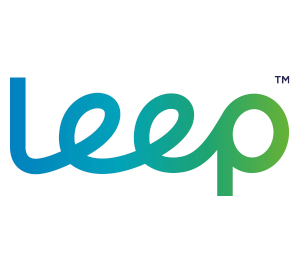Welcome to the first in our series of Forward Thinking articles.
As the year draws to a close, we’re reflecting on recent changes, and looking ahead to 2026 and beyond. Vicky Bell, Leep’s director of regulation and compliance, talks about the regulatory landscape for Leep and its customers.
What regulatory changes are you most closely involved with currently?
As a multi-utility, there’s a lot of regulatory change in different areas – it has certainly been keeping me, and my team busy this last year and we expect this to continue into 2026.
For water, we’re waiting with bated breath for the next steps following the recommendations detailed in the independent commissioner’s report. Of the many things recommended, the streamlining of the licencing process would help us bring sites on board much quicker, which would be beneficial to everyone. The review of the water quality sampling and analysis regime for New Appointments and Variations (NAVs) companies, like Leep, will be interesting. We’re currently expected to do far more sampling than an area’s incumbent water provider, and change in this area would drive better efficiencies internally.
In the area of heat networks, Ofgem has been developing the regulatory framework due to go live in 2026, but we’re still waiting for clarity on what that looks like. We’ve gleaned insights into what Ofgem is thinking, but we haven’t yet got visibility of its decisions. But there will certainly be work to do next year in taking onboard the customer protections, the final regulatory expectation around pricing, and things like how heat operators and suppliers get authorised under the licence.
What regulatory changes will Leep and Leep’s customers be faced with next year?
One of the problems with regulatory change is that we can’t always predict where proposals will land. The independent Commissioners Report is a good example of this, as while we have sight of the recommendations made, we don’t know which of them will be prioritised for implementation by DEFRA. But we are actively monitoring for updates and opportunities to engage with this.
One interesting example is ‘right to connect’ – the Independent Commissioner’s report suggests that incumbents should be given the powers to reject new water connection in certain scenarios. The assumption is that this allows for circumstances where there aren’t the water resources to support a new development, but we won’t know how significant or impactful this may be until we hear more.
In other cases, changes may have an impact on us, but not so much our customers. For example, we’re in the middle of working to deliver the market-wide half-hourly settlement change programme, which is an industry-led change, but from our perspective as an IDNO is less impactful to customers.
What should property developers be considering as we approach the new year?
I mentioned the ‘right to connect’ reform for water. This would impact developers whether they go with us or an incumbent, so it’s going to be important to keep an eye on what form it takes.
The uncertainty around heat network regulation is a real difficulty for developers, and also for Leep, as a heat operator and supplier. There’s additional risk for us in not currently have clear sight of the full and final regulatory framework. And it’s certainly an area where we’re open to working with developers to share views on the likeliest predicted outcomes.
From a policy perspective, the Future Home Standard is driving a real focus on low-carbon heating in new build homes. Again, there’s some uncertainty here – there’s talk about gas boilers being banned from next year, but there’s likely to be transition arrangements in place. There will certainly be the requirement for greater energy efficiency, and use of renewables in new housing and developments.
What’s your top advice for businesses trying to prepare for regulatory change in the year ahead?
Understanding the risks and ensuring you’re in compliance is a challenge, even without the goalposts moving. My advice, particularly for developers is to keep in touch with us. We have a highly experienced team at Leep whose job is to stay across all of this change, and ensure that we and our customers understand how these processes, policies, regulations and frameworks interact.
That’s a big part of the service we offer: our customers don’t need to understand the minutia of it all because we’re already doing it. It’s a busy end of the year for us!

